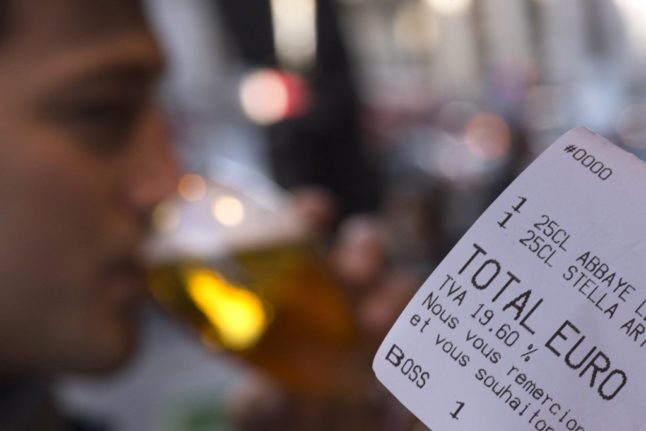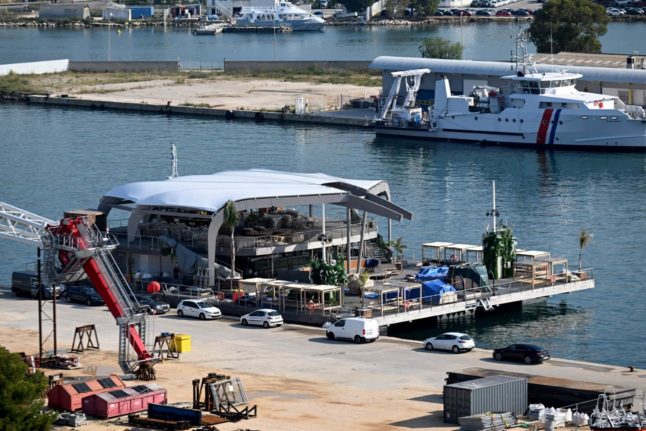From fuel to food, costs are rising all over Europe as inflation bites. But there are still ways to save money while also having a great time and enjoying everything that France has to offer.
Here are our suggestions;
Save money on rail travel
Air fares are soaring this year, but you could save some money if you choose to travel by rail.
Firstly if you either live in France or plan to do a long rail journey, check out the travel cards available. In addition to discounts for young people and pensioners is the ‘carte avantage adulte‘ for people aged 27 to 59. An upfront payment of €49 for a one-year pass gets you a 30 percent discount on TGV, Intercité and TER routes (this doesn’t apply on the budget Ouigo lines or on night trains).
If you’re doing a tour around Europe, the Interrail pass might make financial sense.
READ ALSO How to save money on train tickets in France
Rail operator SNCF also does regular ‘flash sales’ of tickets such as selling 10,000 €1 tickets or special offers such as the free France-Germany tickets for young people. Keep an eye on the SNCF website for the latest offers.
Finally, a pro tip – if your train is delayed or cancelled because of strike action (hardly an unlikely event in France), you are entitled to a full refund – but only if you cancel before your journey was due to depart. If your train is affected, you will receive advance notification via email or the SNCF Connect app.
If your plans change, and you need to change your tickets you may need to pay a fee or part of the cost of the ticket, depending on the type of journey and how far in advance you are changing.
City transport
If you’re staying in a city and using public transport to get around, check out the travel pass options available – it’s often cheaper to buyer a weekly pass or a carnet of 10 tickets than it is to keep buying single tickets for the bus/Metro/tram.
An increasing number of cities, including Paris, have options or either a travel card or an app specifically targeted at visitors.
READ ALSO Apps and travel passes that could save you money in Paris
Bike hire might be an affordable alternative. Most French cities have these, from Vélib in Paris to V3 in Bordeaux, Vélo V in Lyon and VéloToulouse – while most French cities are easily walkable.
Free museum Sundays/discounts
The cost of visiting tourist attractions can quickly mount up, especially if you’re paying for a family – but there are discounts and freebies available.
If you’re in Paris, all of the state-run museums (which is most of them, including the Musée d’Orsay) are free on the first Sunday of the month. Unfortunately, the Louvre no longer participates in free Sundays. Instead they’ve opted to offer free admission after 6pm on the first Friday of each month, excluding July and August.
You can find the list of museums that participate in free Sunday admission here.
Otherwise, museums also offer discounts to a wide range of people – from children to pensioners via 18-25-years who live in the EU and journalists (on production of a valid press card). There’s also the Paris museum pass which will save you money if you plan on visiting a few different museums/galleries over the course of two or three days. Check each museum’s wesbite for details.
And don’t forget the many free activities – from visiting Père Lachaise cemetery to checking out Sacre-Coeur or one of the city’s many parks (we love Buttes-Chaumont).
‘Avoid the Eiffel Tower’ – readers recommend what to see in Paris
Outside of Paris, many cities run their own version of ‘free museum Sunday’ to give unlimited access to their cultural sites, while churches and cathedrals are almost universally free to visit.
Do lunch
Restaurant dining can be expensive, as it is in any country, but many French restaurants do great deals at lunchtime. Even some of the biggest name chefs offer reasonably priced lunch specials – such as Michelin-starred chef’s Hélène Darroze’s €49 menu.
Less famous names frequently offer a three-course lunch menu from between €20 and €30 with courses that are delicious, seasonal and classically French.
You’ll eat like royalty, and then in the evening you can just buy a baguette (€1) to go with some salad, cheese and wine from the market.
It’s also worth keeping an eye out for special deals at certain restaurants – booking app La Fourchette (The Fork) does regular discounts for certain days, so it’s worth signing up shortly before your holiday to see if you can snaffle a bargain.
Also remember that service is included in your bill, so tipping is optional and you can just leave a few euros if the service was particularly good.
Drink tap water
Bars and cafés – especially in tourist areas – often put a vicious mark-up on mineral water and it’s not unusual for it to be more expensive than wine. Unless you specifically want mineral water, ask for une carafe d’eau or un pichet d’eau to ensure that you will be brought tap water to drink with your meal – it’s free.
Likewise, don’t keep shelling out for bottles of water – bring a single refillable bottle and top it up as you go. Not only will it save you money, but it’s much better for the environment – which is why towns and cities across France have a network of drinking fountains for you to refill your bottle at (some of them even dispense sparkling water). In Paris, any bar, café or restaurant that displays the L’eau de Paris logo will refill your bottle with tap water free of charge.
Markets and picnics
French markets are a tourist attraction in their own right, so enjoy a morning picking up beautiful fresh local produce – from fruit and veg to cheese, charcuterie and wine – and then have a picnic.
French families love to make the most of the summer by heading to the park with a picnic and there are no by-laws against drinking in parks, so taking a bottle of perfectly chilled rosé for your picnic is absolutely OK.
If you’re in a city head to any of the parks, most of which stay open until 10pm in the summer, and enjoy an evening of eating, drinking, chatting, soaking up the atmosphere and watching the sun go down.
If you’re in Paris, head to the Quais along the Seine – a lively hangout spot for the city’s young people on summer evenings you can take along wine and snacks and enjoy the view (which has earned UNESCO world heritage status).
Go off the beaten track
Even with these tips, Paris can be an expensive city (especially for accommodation). It’s also pretty crowded in summer – so go elsewhere.
Concerned about ‘over-tourism’, the French government is keen for people to explore some of the lesser-known parts of France, which often offer better value for money as well than the well-trodden paths of Paris, the Riviera and Mont Saint-Michel.
READ MORE: Ten (much) better alternatives to the Paris tourist hot spots
You can find our pick of 19 lesser-known parts of France to explore here. Meanwhile the French government has created – in the route that the Olympic torch will take next year – a list of places that it considers show off the country at its absolute best.
Do you have a money-saving tip for France? Share it in the comments below



 Please whitelist us to continue reading.
Please whitelist us to continue reading.
The Louvre is not open for free on the first Sunday of the month. The Louvre web site states: “The Louvre is free for all visitors on the first Friday of the month after 6 p.m. (except in July and August) and on 14 July!”
It is a good idea to check the museum web site before you visit.